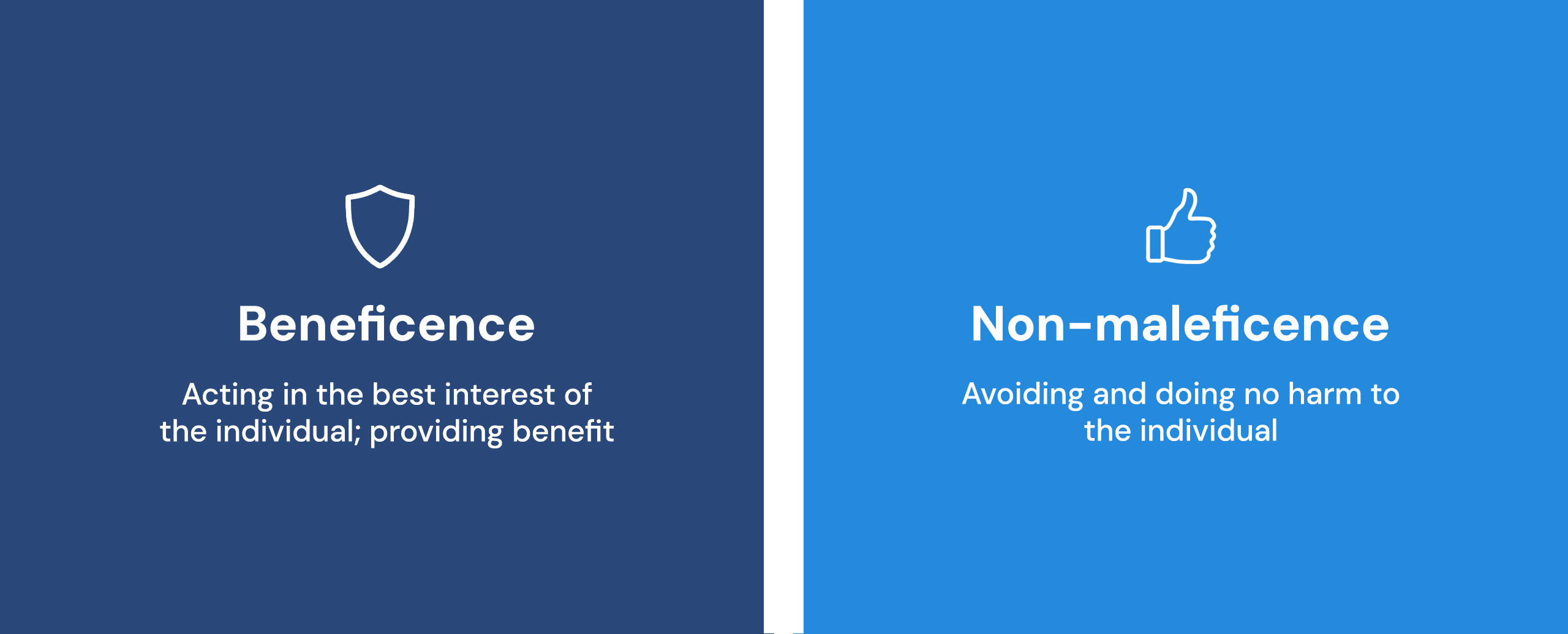Beneficence and Non-Maleficence
In the context of law and ethics, beneficence and non-maleficence are fundamental principles that guide the actions of individuals, including professionals and institutions. Following these ensures ethical conduct and decision-making. These principles are often applied in various fields, including healthcare, research, and legal practice.
Principles of Beneficence and Non-Maleficence

Enshrined in UK law, these principles are used to guide the decisions of healthcare professionals. These principles establish the foundation of forensic psychology in the medico legal system, specifically as forensic psychologists need to follow “No harm” and “Do good” side-by-side. Thus, in this article, we will explore each principle in the context of the law and healthcare.
Unleash the Power of A Forensic Psychologist Expert Witness in Your Legal Case
The Principle of Non-Maleficence
Non-maleficence involves actively avoiding harm to others and refraining from actions, such as killing, committing crimes, or intentionally depriving others of their joys. The bedrock of this notion is the Latin axiom “primum non nocere,” which translates to “first, do no harm,”. Consequently, it emphasises the prime importance of not causing harm to the parties involved.
In the medical system, the principle involves intentionally avoiding causing harm to others and instead actively working to impact those around them positively. Medical professionals are bound to adhere to this principle to take good care of those under their care.
Similarly, in the legal system, this principle requires individuals to avoid causing unnecessary harm to clients, opposing parties, witnesses, solicitors, or other stakeholders. For example, a judge’s commitment to non-maleficence would mean making impartial and fair decisions to avoid unjust harm towards any party involved in the case. Furthermore, attorneys must refrain from engaging in unethical practices that could harm their clients or others, even if it might seem momentarily beneficial to them.
The Principle of Beneficence
Beneficence refers to the obligation to act of doing good, promoting the well-being and best interests of others. It is a fundamental concept in ethics, particularly in medicine, research, and law, where decisions and actions can significantly impact individuals and communities.
In the medical realm, beneficence means taking actions that benefit the patient, providing for their well-being (physically and psychologically). It demands compassion and understanding of the patient’s value system: determination of “good” is highly subjective and depends on personal preferences.
In the legal realm, this principle requires that entities involved should strive to do good and promote positive outcomes for those affected by their actions. For instance, in criminal law, a defendant’s duty of beneficence might involve working diligently to protect the rights of their client and ensure they receive a fair trial. On the other hand, a prosecutor’s beneficence may involve seeking justice for the victim and the community while respecting the rights of the accused.
Read: What is Insanity Defence
Final Thoughts
The principles of beneficence and non-maleficence are integral to both the legal as well as medical realms, guiding ethical forensic conduct and informed decision-making. At Concise Medico, as a business operating within the legal system in the UK, we firmly adhere to these principles in all aspects of our expert witness reporting services.
Our panel of expert witnesses is carefully vetted, verified and upholds the highest ethical standards, striving to provide accurate and impartial testimony. We understand that our duty is always to the court and the court only; therefore, our experts avoid harming the parties involved in legal cases. Contact us now and get one step closer to fairness and justice in the UK.
Read about PSTD Symptoms and Treatments




